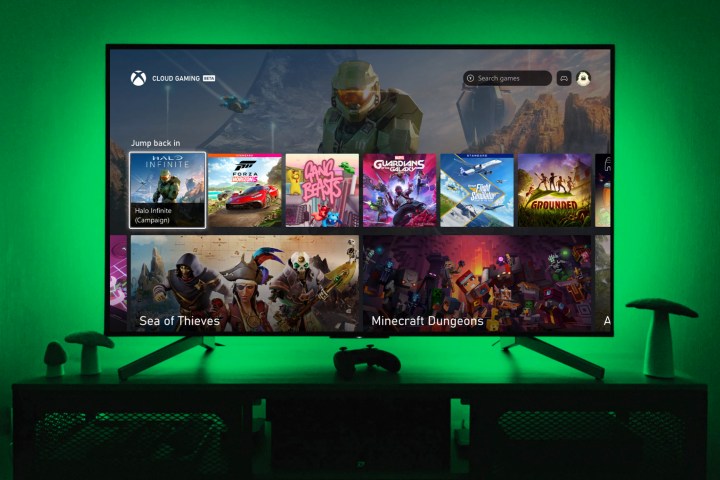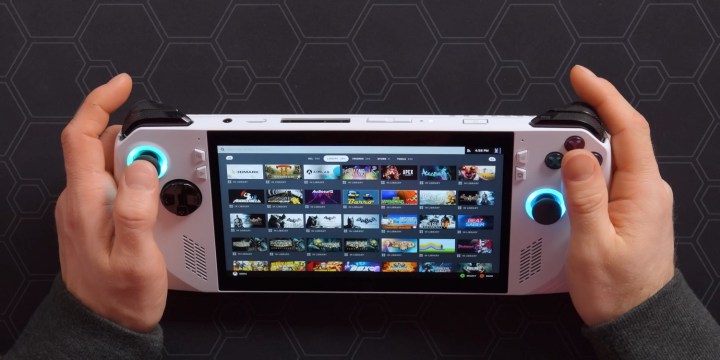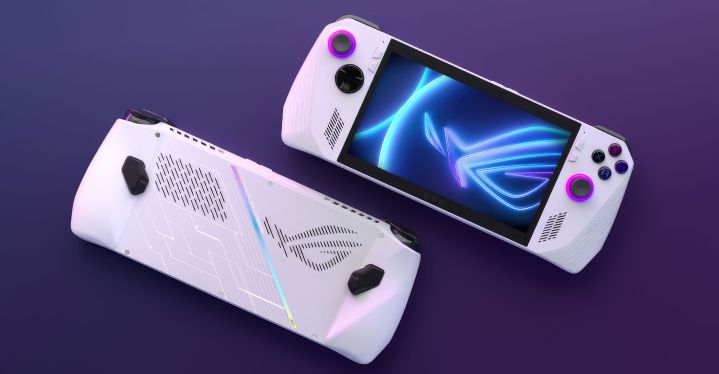I’m excited about Asus’ upcoming ROG Ally gaming handheld, and mainly for one reason: Windows 11. The device comes with a spec bump over the Steam Deck, and I won’t argue with RGB lighting around my thumbsticks, but Windows is what makes the ROG Ally truly stand out.
With Windows, you don’t have to worry about a verification program to play your games — even if Valve has handled the Steam Deck Verified program very well — and you can access other app stores. And, of course, there’s Xbox Game Pass.
But as it turns out, Windows is also my biggest worry about the Ally — because let’s be honest, this could go very, very wrong.

Handheld Windows? It needs to work
There’s plenty that gets me excited about the ROG Ally, but I can’t overlook the giant elephant in the room: Microsoft. For as much as I love having my huge Game Pass library on PC, Microsoft has struggled to adopt Windows to other form factors and struggled even more to get Game Pass titles running consistently on PC.
There are already a ton of handheld devices that use Windows 11, and if you want, you can even install Windows 11 on the Steam Deck. It’s a bit of a joke, though. Unless you like hooking up a keyboard and mouse through a USB hub, using Windows on a handheld device currently isn’t feasible.

Reports suggest Microsoft is working on a smaller version of Windows for handheld gaming devices, presumably for devices like the ROG Ally. The interface came out of an internal hackathon Microsoft hosted last September, and the early version shows enlarged icons and a new taskbar, all of which you can navigate with a controller.
It’s not a stretch to say that the success of the ROG Ally hinges on how well Windows runs. Windows 11 has introduced some significant improvements to touch controls for tablets, for example, but it’s still a far cry from what users can expect with iPadOS. With a device like the ROG Ally, Microsoft has similar hurdles to overcome — and not much time to do it.
Even with its bugs, SteamOS has proven to be a successful platform for handheld gaming. It’s built specifically for that purpose, and there’s no fussing around with dense settings that you need a keyboard and mouse to access. It’s not as streamlined as the Nintendo Switch, but it’s a lot simpler than Windows, that’s for sure.
The dreaded Xbox app

I’m hopeful that Microsoft is working hard to get a handheld mode running for devices like the ROG Ally, and if Windows 11 is anything to go by, the company understands that these unique form factors are important for the long-term health of its storied OS. My bigger worry is the Xbox app on Windows.
The Xbox app on Windows is inexplicably buggy. That’s the only way to describe it, and if you’ve used it for a decent amount of time, you’ll know exactly what I’m talking about. Sometimes your hard drives won’t show up, other times the Gaming Services app will break and block you from installing games, and half the time when you load up a game, your controller will simply refuse to work. What’s frustrating is that, half the time, the app works flawlessly.
Just last night, I was getting the Xbox app installed on my Zephyrus G14 — it took two hours and it’s still not working. The installer would consistently timeout, sending me down a rabbit hole of command prompt and PowerShell commands to get it to work. I finally got it installed, but now the app is borked because it fails to automatically update every time I open it.

It’s not just my cursed Xbox app, either. Users reported much worse performance in Warhammer 40:000 Darktide on the Xbox app than on Steam, for example, and an update to The Ascent in 2021 broke the game on Xbox PC, but not on Steam. There are cases where this goes in the other direction — Nier Automata wasn’t fixed on Steam until after the Game Pass version released — but anecdotally, I’ve encountered a lot more issues on Xbox Game Pass than I’ve ever encountered on Steam.
In 2023, the Xbox app has come a long way since it was originally released. I can now play games on it comfortably, but I still run into issues. On a desktop, those issues are fine. On a handheld like the ROG Ally, I’d give up well before finding a solution.
I don’t want to end here on a negative note. Although I have some issues with Xbox on PC and some reasonable concern about a handheld version of Windows 11, there’s a lot of room for Asus and Microsoft to improve on the Valve’s design. I just hope we see those improvement out of the gate and not months down the line.
Editors' Recommendations
- Microsoft is adding a controversial app to Windows 11
- Sorry, Microsoft — I don’t want Copilot+ reading my DMs yet
- You might not be able to afford the ROG Ally X
- The simple reasons your PC games don’t play as well as they should
- I would give up my Steam Deck if the ROG Ally 2 had these features




